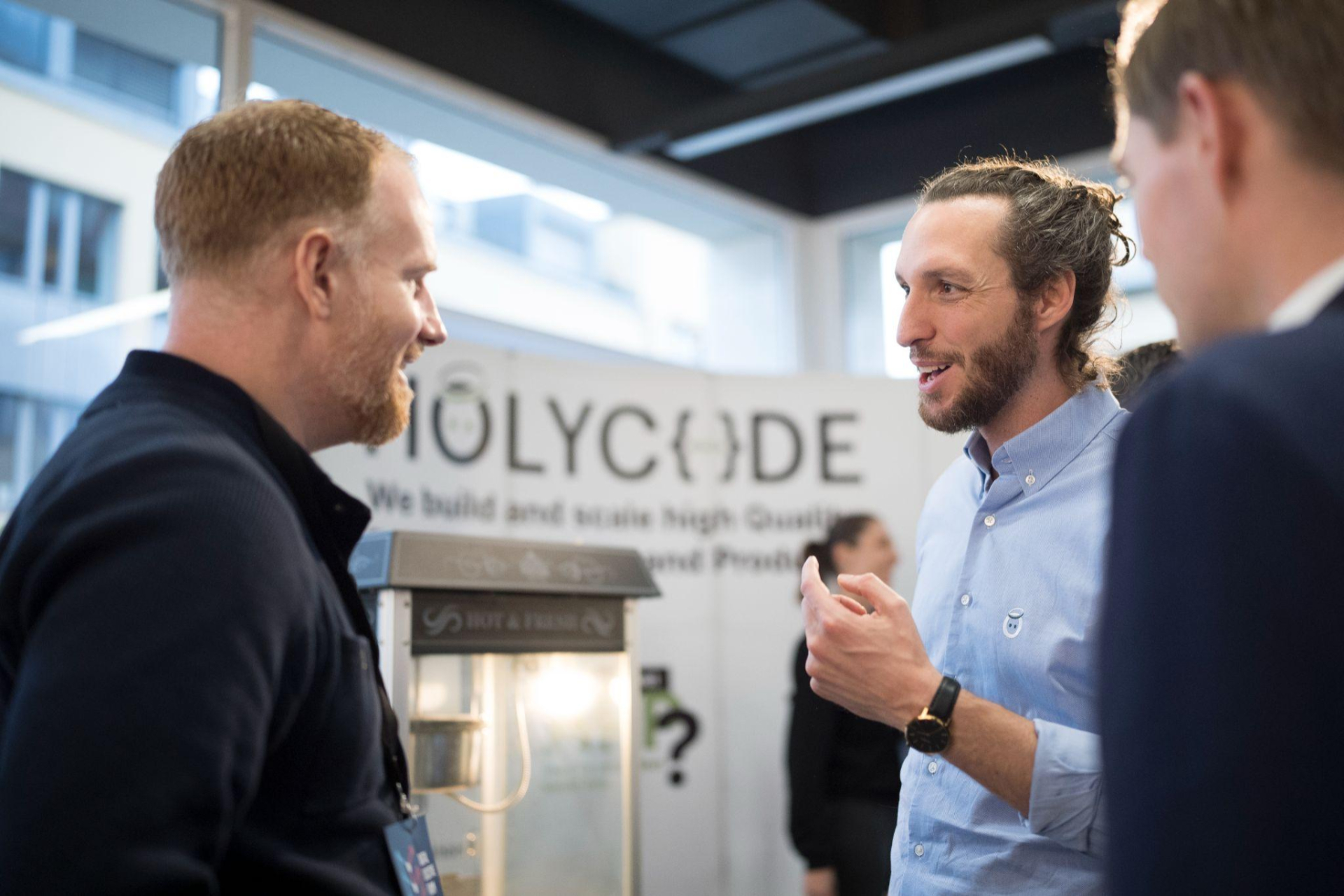Finding the right co-founder (and staying aligned along the way)
Finding the right co-founder can make or break a startup. And it’s not just about skills – it’s about finding someone you can trust, share values with, and build something meaningful together.

Over the years, I’ve worked with multiple founders – some who found their perfect co-founder almost by accident, and others who struggled to get it right. Here’s what I’ve learned about finding and staying aligned with the right co-founder 🤝
1. Start with values, not skills
It’s easy to get caught up in finding someone with the right technical or business skills. But in the long run, the real make-or-break factor is values. Does this person share your sense of integrity? Will they stick with you when things get tough?
I’ve seen founders who had the perfect mix of skills on paper but fell apart because their values were fundamentally different.
Skills can be learned, but values are far harder to change.
For example, in Movu, I was lucky to have Nenad as my co-founder. While he was a brilliant tech mind, what really made our partnership work was that we shared the same principles and vision. We both wanted to build something meaningful, not just make money, and we both shared the values of being disciplined, performance driven, ambitious, but at the same time also very honest and with a sense of having fun while doing it.
2. Set clear expectations from day one
What do you want to achieve with your startup? Are you building something to sell in five years, or do you see this as a legacy you’ll own forever?
One of the most important early conversations with a potential co-founder is about your shared vision. Some great teams fell apart because one founder wanted to scale and sell, while the other wanted a lifestyle business. Imagine that you want to create a sustainable, eco-friendly product and are willing to invest time and money into making it perfect. Your co-founder, on the other hand, wants to get rich. Yes, you’ll have a problem.
Make sure you’re aligned on the end goal – because that will drive almost every decision you make together.
3. Look for complementary strengths
A great co-founder doesn’t need to be your clone. In fact, they shouldn’t be. The best partnerships are built on complementary strengths – one founder might be great at product and technology, while the other excels at sales and marketing.
But complementarity isn’t just about skills – it’s also about personality.
Some of the strongest teams I’ve seen were founded by people who balanced each other’s temperaments. The visionary and the executor. The big picture thinker and the detail-oriented planner.
I’ve always been more of a visionary and a bit of a complicator. Nenad was the perfect match for me because he was always firmly on the ground, with a clear overview of the situation and the solution, balancing my ideas.
4. Trust is non-negotiable
In the early days, there will be disagreements. But without trust, even the smallest problem can turn into a massive conflict. You have to be able to speak openly, disagree respectfully, and know that your co-founder has your back, even when things go wrong.
I’ve seen teams where trust fell apart because one founder felt excluded from key decisions, or because they didn’t feel they could rely on their partner to deliver. In such cases, the company either broke apart or became toxic. Either way, you don’t want that.
5. Test the partnership before you commit
Don’t just pick a co-founder because they’re available. Work together first. Build a small project. Even if it’s just a side project, you’ll learn a lot about how you collaborate, how you handle conflicts, and how you make decisions together.
If you’re already friends, this is even more important.
Working together can bring out sides of people you haven’t seen before.
Sometimes, even a few days of working with someone can drive you crazy. Trust your instincts! They are usually right.
6. Define roles and responsibilities early
One of the biggest sources of conflict between co-founders is a lack of clarity. Who is responsible for what? Who has the final say on key decisions? Are you equal partners, or is one of you the final decision-maker?
I learned at Movu because, at first, Nenad and I thought we should make every decision together. But that’s a recipe for frustration and wasted time. Once we clearly defined who was in charge of what, everything became much easier.
7. Maintain a single voice as a team
If you’re running a company together, you must be a united front. Even if you have different opinions, it’s critical that you align your messaging to your team. That unity creates clarity, avoids confusion, and strengthens your team’s trust. We took the concept from Jeff Bezos which he calls “disagree but commit“. It’s fine to have different opinions, lay them out, discuss them fiercely and then come to a decision together.
Not everyone agrees but everyone commits to work towards the taken decision.
8. Embrace coaching for better communication and alignment
Coaches can be incredibly valuable in helping you and your team communicate better, establish effective feedback practices, and make important decisions more easily. I was skeptical at first, but coaching really helped us at Holycode. It wasn’t just about aligning the founders and the management team; it also improved the dynamics within the entire team. This experience changed our interactions for the better, making us more cohesive and effective. Coaches offer perspectives you might not see yourself, helping to foster a more collaborative and productive environment.
9. If you’re friends, protect the friendship
Starting a company with a friend can be amazing – if you protect the friendship. I’ve seen friendships (more than a few) implode because co-founders didn’t set clear boundaries between work and personal life.
Be clear about when you’re speaking as co-founders and when you’re just friends. Schedule time for fun outside of work. And be honest when things get tough.
10. Don’t rush it
Choosing the right co-founder is one of the most important decisions you’ll ever make as a founder. Take your time. Talk to people you trust. Get their perspectives. And remember, the right person might be someone you already know – but they could also be someone you meet through networking, accelerators, or even by chance. Keep your eyes open.
Whether you’ve already found your co-founder or are still searching, these lessons come back again and again as your startup grows.
Final thoughts
Finding the right co-founder isn’t just about building a company – it’s about finding someone you can go through the deepest valleys with, someone who won’t flinch when things get tough.
If you’re thinking about starting a company or are already struggling with your co-founder relationship, remember:
Values come first, trust is non-negotiable, and clarity is everything.
I’ve been lucky enough to build multiple companies, and if there’s one thing I’ve learned, it’s that the right co-founder doesn’t just make the journey easier – they make it possible.
Let’s start achieving excellence together
Get in touch with our experts today to turn your ideas into reality and accelerate business growth.




